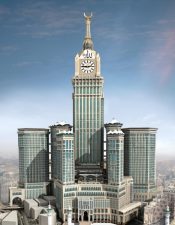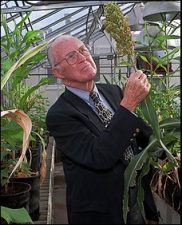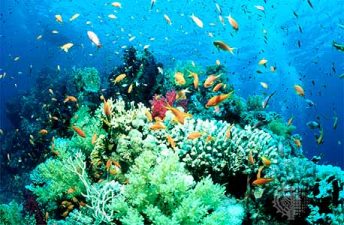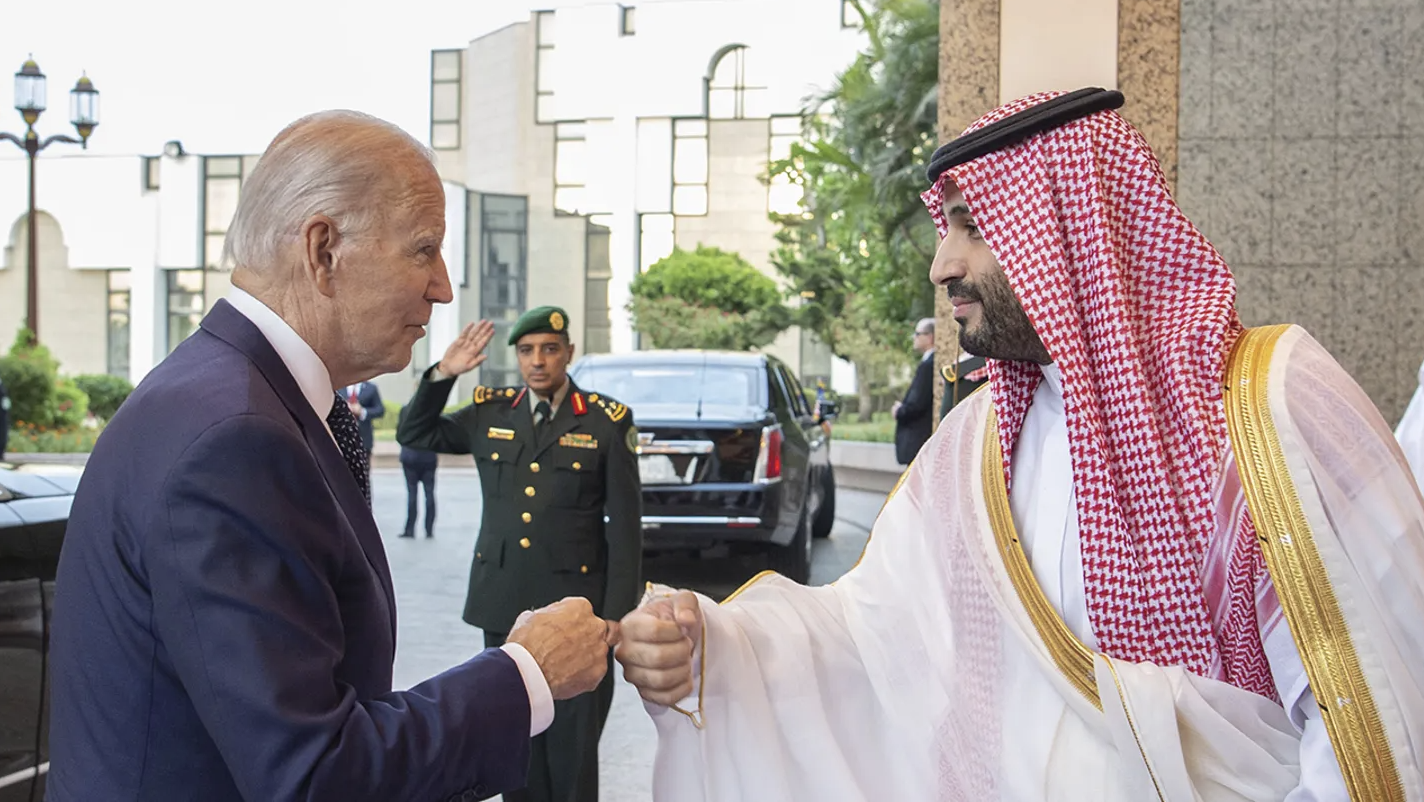
Saudi Arabian Crown Prince Mohammed bin Salman and Joe Biden at Alsalam Royal Palace in Jeddah, Saudi Arabia on July 15
America’s President Biden is sending a message to corporate America by not sending high profile US government officials to Saudi Arabia’s business conference this week, the Future Investment Initiative. The 3-day event, nicknamed Davos of the Desert, is opening Tuesday today, but US officials will be absent.
The theme this year of the Future Investment Summit (FII) is “impact on humanity”, more double-speak for the Saudi regime who has killed protestors against the new mega architecture project, Neom, which includes the 150-mile long vertical megacity known as The Line.
As we speak, protestors against The Line, Bedouins who belong to the land, are in jail facing a life sentence or the death penalty. A Bedouin brother was killed in 2020 protesting the construction of the boondoggle that’s supposed to bring “sustainability” and a renewable future to the world, care of Saudi Arabia –– known for its carbon impacts from oil, environmental destruction and gross violations of human rights.
What is Davos in the Desert?
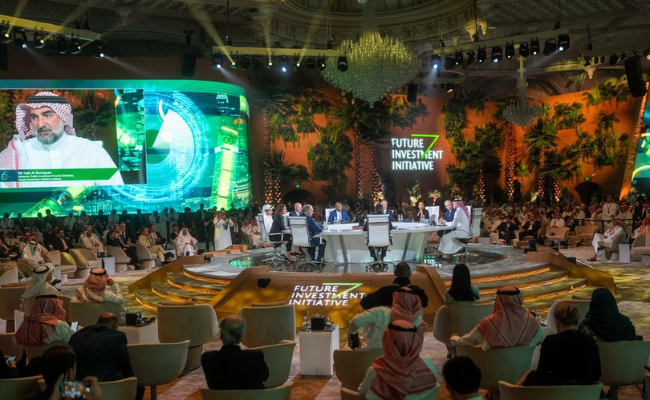
Hob-nobbing at Davos in the Desert
Saudi Arabia and the US have some disagreements on energy, and Saudi Arabia and its oil cartel OPEC Plus, led by Russia and Saudi Arabia, has cut oil and gas exports to America, benefitting Russia. This decision will hurt Americans even more, as prices rise at the pumps and the invasion of the Ukraine by Russia continues. Biden has said to the Saudis that there will be “consequences”.
Meanwhile, where US officials fear to tread, investment banks Chase, JPMorgan, Goldman Sachs and Wells Fargo will be there along with Blackstone Group and Bridgewater. Former Trump officials like Jared Kushner is expected to be there too.
If your mother, father or grandparents are attending the event, send them this link about The Line and the Bedouin who live there. Associating with regimes and taking their oil money makes you complicit in their crimes.
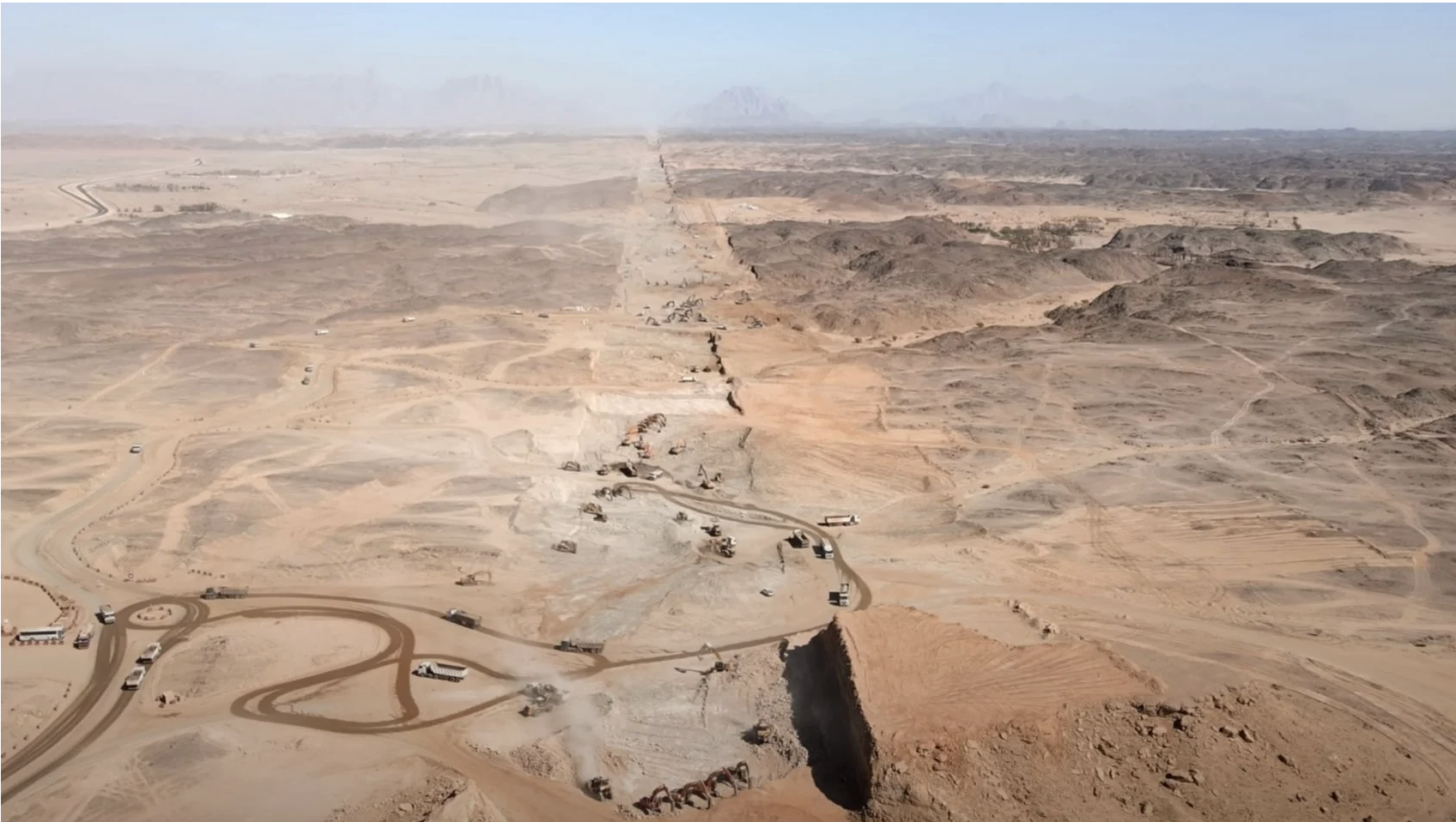
Drone footage shows construction of the The Line is underway. Meanwhile Bedouin who live there are sentenced to death.
White House press secretary Karine Jean-Pierre told American companies to consider “reputational concerns that can arise from public policy choices made by host countries” when investing.
She says, “the decisions that OPEC+ made just last week is — was, we believe, sided with the Russians and was against the interests of the American people and the families around the world. We believe that decision is going to hurt and harm low- — you know, low- — lower-income economies. And it is a — it was a misguided — and it was a mistake and a short-sighted decision.”
Meanwhile, I highlight the problems with large and multinational corporations and research groups. The head does not know what the tail is doing, or does, and doesn’t care: HEC Paris (claiming solidarity with the Ukraine people on its website), Springer/Nature and Stanford University, California are partners at the event. Why? Saudi Arabians are freaking wealthy and people, universities and companies want their money as we continue living a carbonised life on oil.
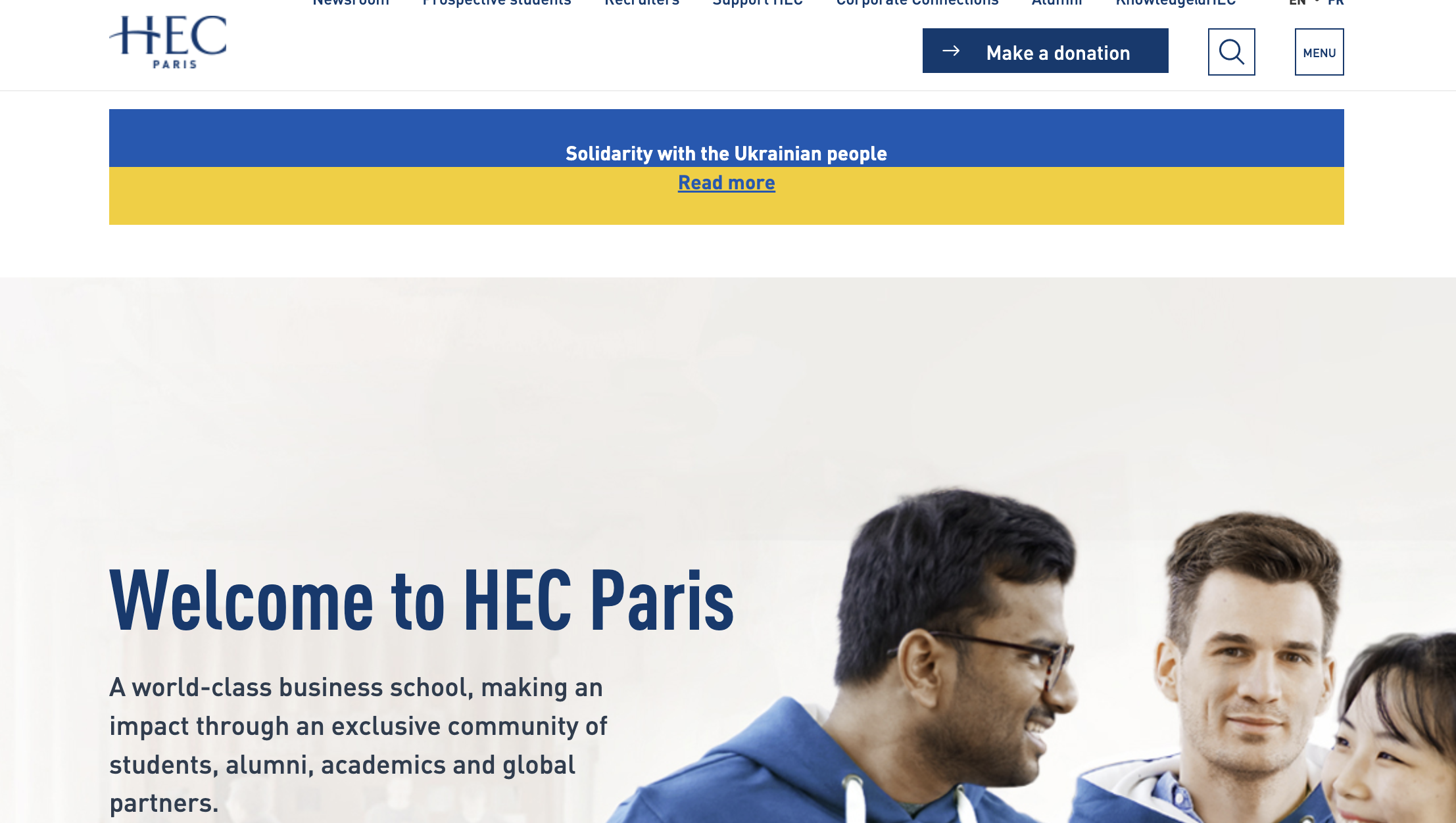
The same idea rings true for American companies who invest in or do business with companies that pollute or damage the climate. Social media has showed how easily reputations can be compromised.
Saudis also respect and listen to western advice.
The Trump administration meanwhile set a different tone with Saudi Arabia: it encouraged business between the superpowers and it led peace efforts among Middle East countries.
Meanwhile conference organizer Richard Attias told the press that he was turning down American businesses eager to attend due to lack of space.
Also on the Biden Administration’s mind: tensions are still flaring from the 2018 killing of Saudi journalist Jamal Khashoggi, an American resident at the time of his death. Jamal Ahmad Khashoggi was a Saudi journalist, dissident, author, columnist for Middle East Eye and The Washington Post, and a general manager and editor-in-chief of Al-Arab News Channel who was assassinated in Turkey. Khashoggi had been sharply critical of the Saudi rulers, King Salman and Crown Prince Mohammed bin Salman.
Not all money is the same. The people that come with it and who are behind it matter. That has always been the case and remains the case and we are reminded of it from time to time. Like right now.
— Fred Wilson, Union Square Ventures
We don’t like to preach doom and gloom. And Saudi Arabia is doing some good things too. It’s investing in hydrogen and replanting millions of mangroves trees.
Want to be part of Saudi Arabia’s growth while not damaging the planet future? It’s an in-depth study, and difficult to read but this Nature study’s author Haider Mahmood and associates invested much time and research on how Saudi Arabia can achieve its sustainability goals, sustainably.
Also globetrotting investment bank executives: a couple of weeks from now superpowers will be meeting across the Red Sea to the UN Sharm el Sheik Climate Change Conference in Egypt. Consider bringing your investment bank there to see how money can drive the world in a positive way for people and climate.



